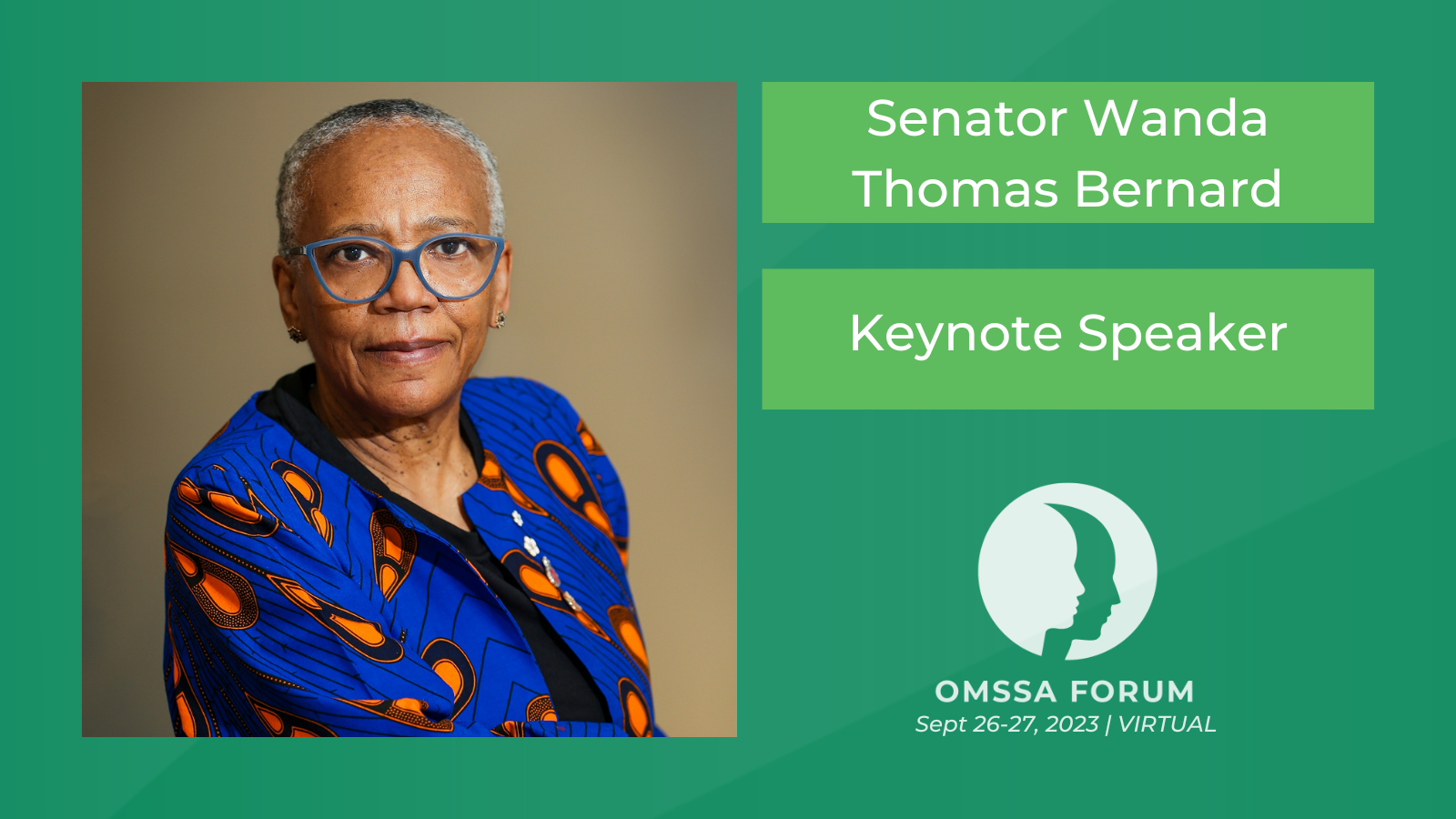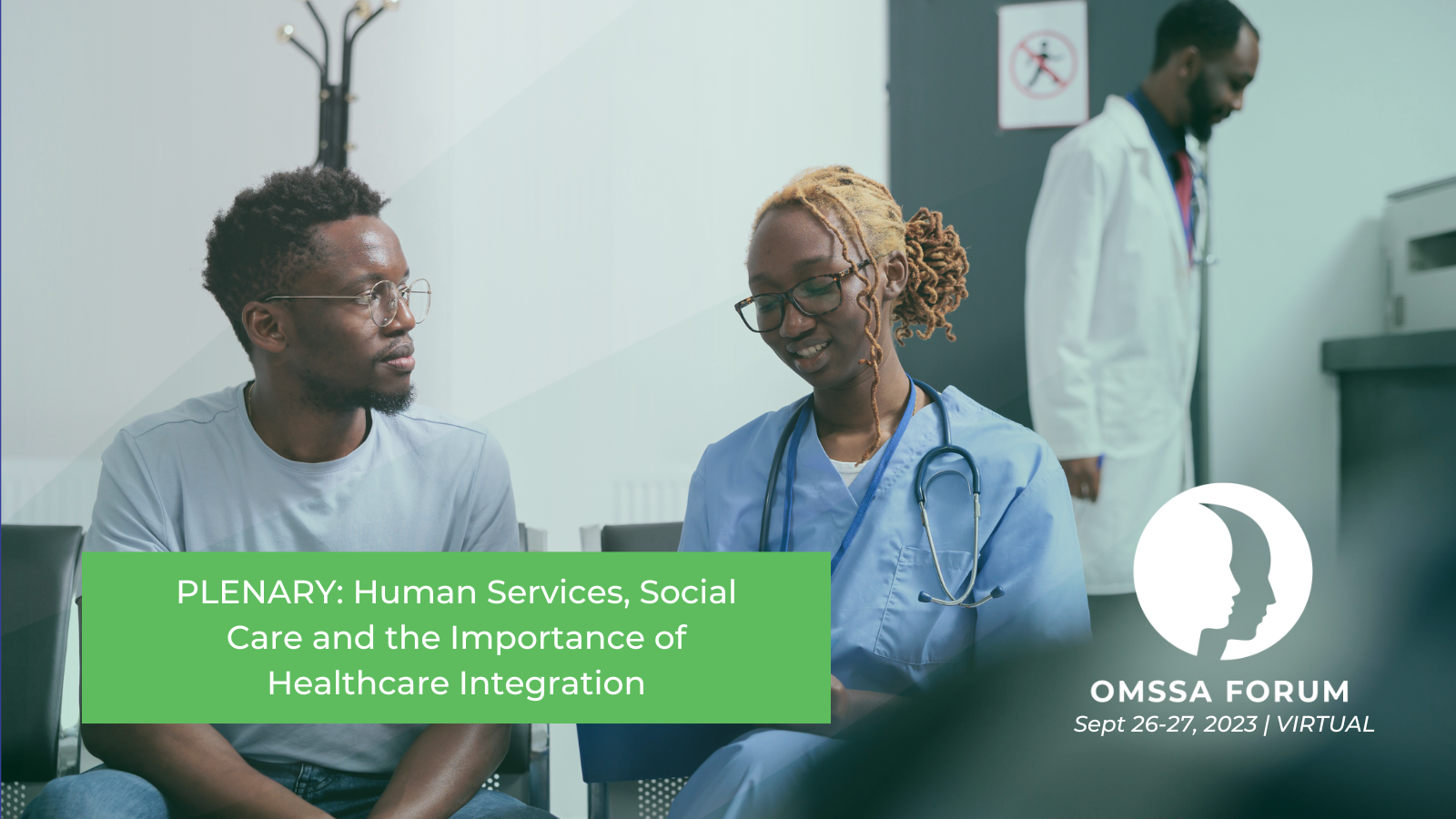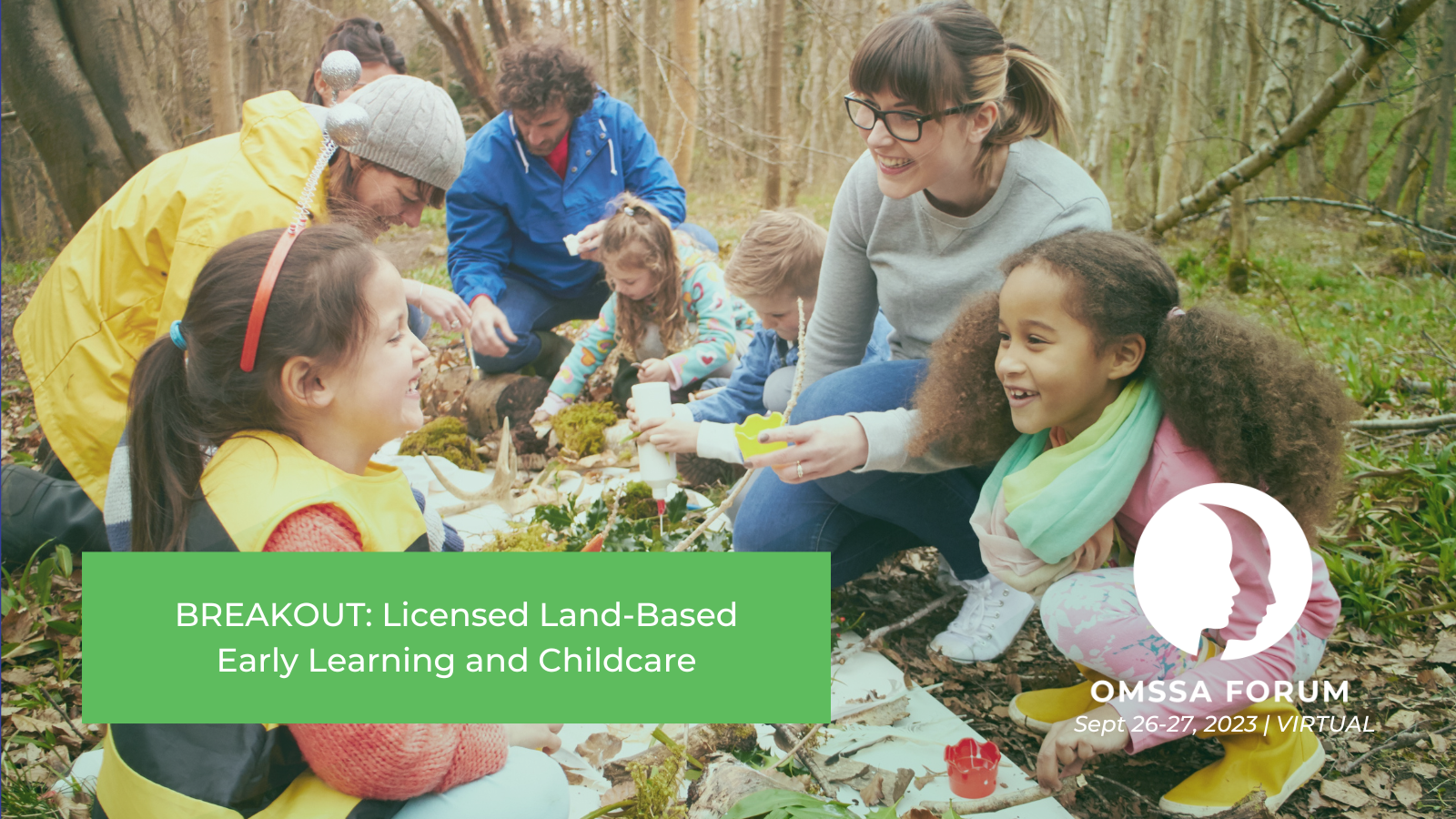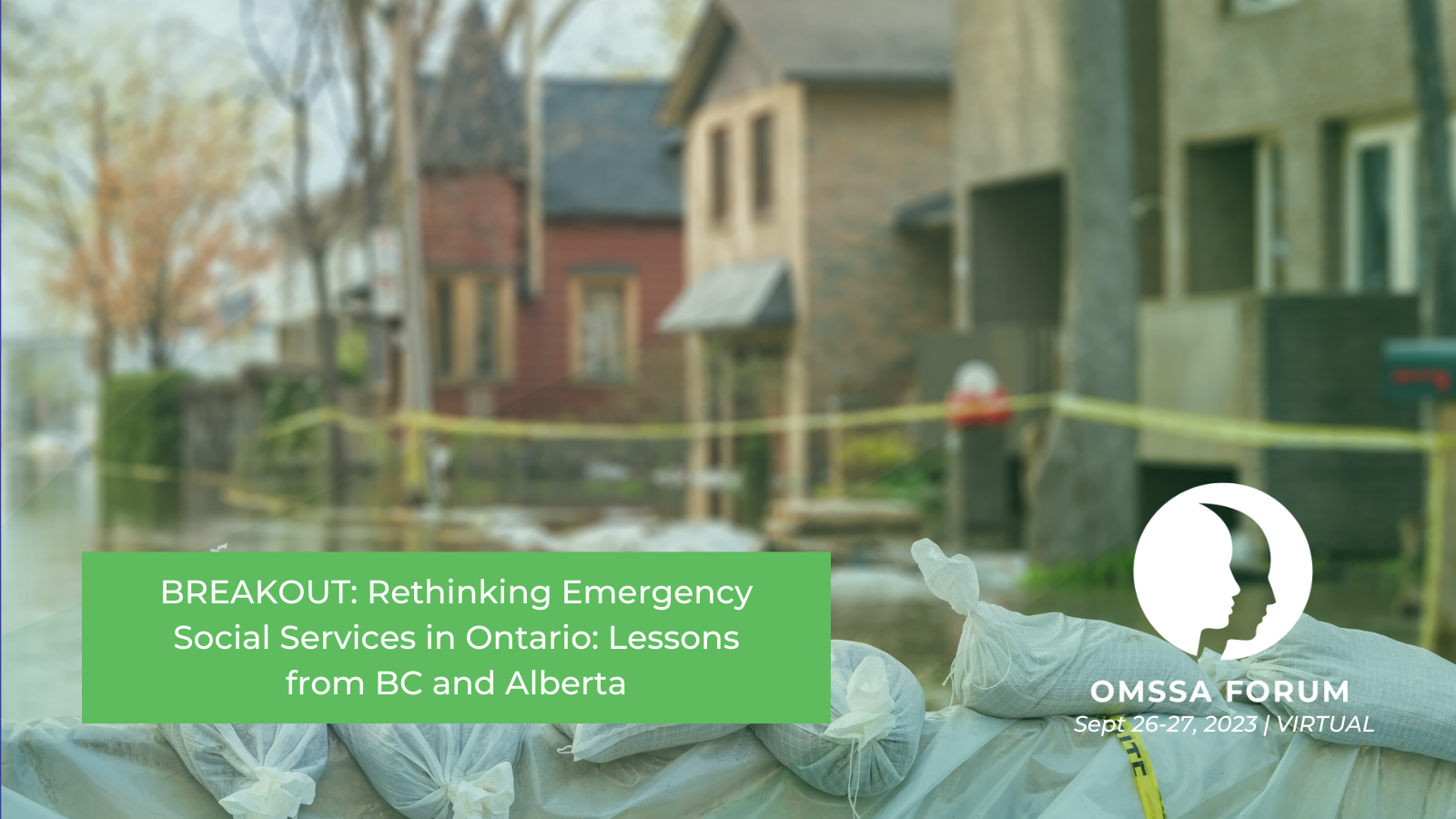Highlights from OMSSA's 2023 Virtual Forum
Highlights from OMSSA's 2023 Virtual Forum
By: Nalisha Sankreacha & Tod Duncan
November 2023
OMSSA’s Forum was held virtually over two mornings on September 26 and 27. This year we were joined by 363 participants from all over the province, including 38 Member and 15 Non-Member organizations.
With the format of this event being virtual we were able to feature a variety of speakers from New Zealand, Sweden, Norway, Belgium, Wales, Scotland, Washington, Texas, Northwest Territories, British Columbia, and Alberta. Hearing from these perspectives it was clear that many jurisdictions are facing challenges similar to what OMSSA Members are facing on a day-to-day basis. In developing a conference drawing on speakers from outside Ontario, our goal was to create sessions where attendees could learn about unique approaches and solutions that can inform and corroborate the work being done by CMSMs and DSSABs.
Day 1 – September 26

- Deepen your understanding of how structural barriers impact people accessing social services.
- Change is an individual and collective responsibility - we all have a role.
- Make the shifts. Shift your practice to be anti-oppressive and your workplace to be a braver space.
It was overwhelmingly clear that this keynote resonated with the audience who commented that they would like to create braver spaces in their workplaces to open conversations around the impacts of race and power.
Following this, we heard from three presenters from the United Kingdom. First, Bryony Shannon, Writer of Rewriting Social Care Blog, emphasized the importance of language in our daily work and how the labels we create to distinguish service users can make our work more transactional. She challenged the audience to think of what more human services look like, and how we can simplify language that might alienate people who seek support.
Second, we heard about the newly developed Trauma-Informed Wales Framework. Joanne Hopkins began the discussion by looking at how this work was started and how a coherent trauma-informed way of working can be implemented across different organizations, systems, and the broader community. Jen Daffin followed this with a presentation about community trauma and why understanding trauma and being relationally informed is fundamental in addressing the global mental health crisis.

This presentation was followed by Dr. Andrew Pinto who spoke about the challenges and constraints of our current health and social care systems, such as the focus on diagnosis, hierarchies, silos, and the inequities in access and quality of care. He followed this by exploring what an upstream and integrated system could look like: one that continuously supports the improvement of health and focuses of root causes, while also acting as a catalyst for creative alternatives in other parts of society that impact education, housing, work, food and water, and social connection.
Day 2 – September 27
On Day 2, the Forum featured seven concurrent sessions. These sessions were sector specific – focusing on the areas of housing and homelessness, employment and income, children’s services, and emergency social services. Below is a summary of a few of these sessions:
Moving From Temporary to Permanent: Supportive Housing Solutions in Helsinki and Houston
With housing affordability and homelessness on the rise around the world, this breakout offered an opportunity to examine models in North America and Europe to learn how other jurisdictions assist their homeless populations with the goal to get people housed permanently.
The Houston model examined how efforts are being made to fight homelessness through two methods: recruitment and engagement of landlords to expand housing options and availability, and decommissioning encampments with the proper wrap-around supports.
The Helsinki model focused on systemic change to end homelessness and refocus the argument on this work as being a public good and an effective way of using public finances to achieve results. This presentation also focused on the work of the Y-Foundation in Finland in assisting their homeless population in being housed permanently.
The Digitalization of Social Services
This breakout was geared toward individuals working in the employment and income sector. It focused on the global shift toward more technological solutions. The voices in this conversation were from Ontario, Sweden, Belgium. With the province hoping to accelerate the delivery of services that are centralized and automated, these academics and experts spoke about:
- Positive and negative experiences with automated and discretionary decision-making.
- The role of artificial intelligence in the future of social services.
- The importance of a central repository of social purpose organizations to empower social services staff and permit them to better support service users.
- How technology can make services accessible or equitable, and how we must consider these aspects when developing new tools.
Children’s Services Sessions:
Licensed Nature-Based Early Learning and Child Care

As Ontario continues to roll out the Canada-Wide Early Learning and Child Care (CWELCC) program and we look for solutions for creating new spaces within the system, nature-based ELCC presents us with a novel option for rapidly and effectively developing capacity. This panel brought together experts in the field of nature-based ELCC, including speakers from three jurisdictions who have either successfully established a licensing regime (Washington State and Scotland) or who are actively piloting a program that might be rolled out more broadly (Newfoundland and Labrador). The panelists demonstrated that nature-based ELCC should be seen as a viable solution to some of the constraints that exist in the current system and that we now have well-established examples to look to for inspiration.
Expanding Access to Child Care Equitably
The Forum’s second child care session contributed to thinking around the important issue of the equitable expansion of CWELCC. The panelists pointed to the fact that CWELCC agreements point to the need for the program to create high-quality, affordable, flexible, and inclusive ELCC. The speakers pointed to examples of other jurisdictions that have achieved a high degree of equity in their ELCC delivery and, in those cases, municipalities always have a high degree of involvement. Municipalities, it was argued, are best positioned to address the systemic nature of the barriers to equity. Among the most significant challenges to equity are being proactive in city planning; clarifying the purpose of child care; understanding the rights of children related to ELCC; and ensuring adequate and appropriate training, wages, and working conditions for the ELCC workforce. With all these in mind, the role of municipalities is central to solving the problem of equitable expansion. Part of their approach to equitable expansion should also involve assisting organizations, like the Ontario Federation of Indigenous Friendship Centres, to provide Indigenous-led, culturally appropriate ELCC for urban Indigenous communities.
Emergency Social Services Session:
Rethinking Emergency Social Services in Ontario: Lessons from BC and Alberta

Central to this is the awareness that CMSMs and DSSABs, when properly supported by higher levels of government, are often particularly well-equipped to provide these services because they are uniquely aware of the needs of their communities. However, part of this awareness of community needs is that providing culturally appropriate services are essential to an effective approach during emergencies. In BC, for instance, the First Nations Emergency Services Society was specifically created to provide Indigenous-led emergency services First Nations communities throughout the province. Panelists also stressed the importance of delivering disaster psychosocial services (DPS) as a component of the overall emergency response. An often-neglected component of emergency planning, DPS assists communities with the experiences of grief and loss that are connected to disasters of all kinds. As climate-related emergencies become more frequent, it’s vital for OMSSA members to continue to adapt their social services responses as we understand more about the long-term impacts of such events.
Concluding Thoughts
On behalf of OMSSA, we thank all committee members, presenters, and attendees for making this year’s event a success. If you didn’t make it this year, we hope that you can attend a future Forum! While the topic of this event changes every year, we hope to continue to include international voices and continue to keep a pulse on the broader social services landscape.
About the Authors


Blog categories: OMSSA Forum, Healthcare, Integration, Housing, Homelessness, Digitalization, Children's Services, Emergency Social Services